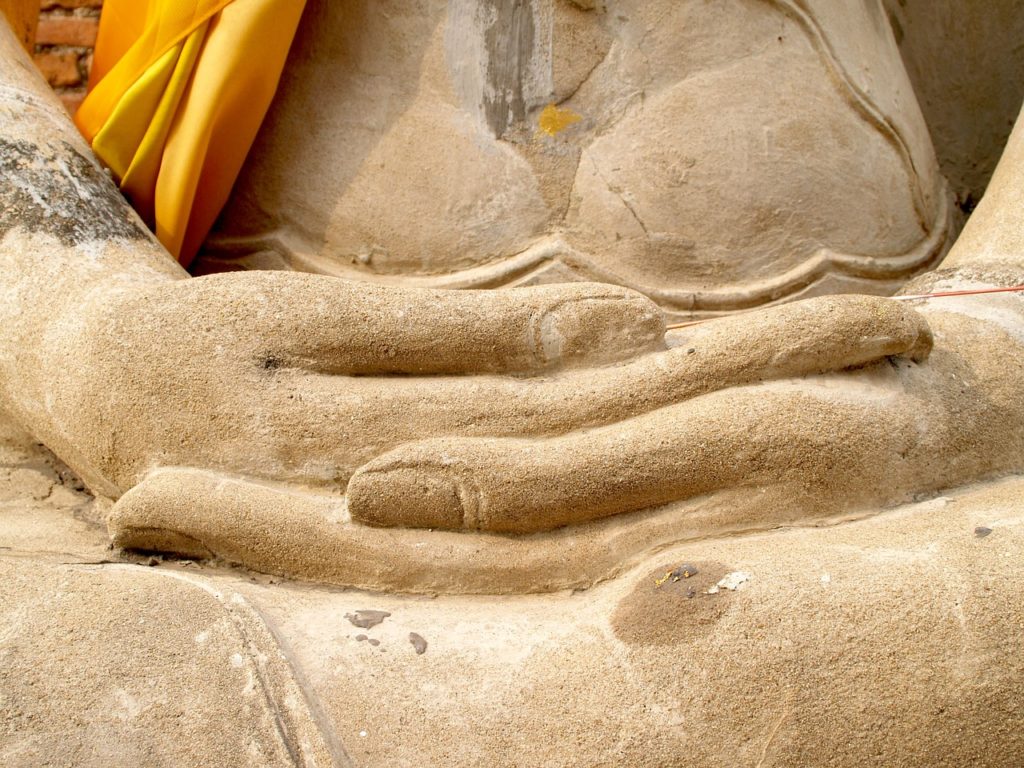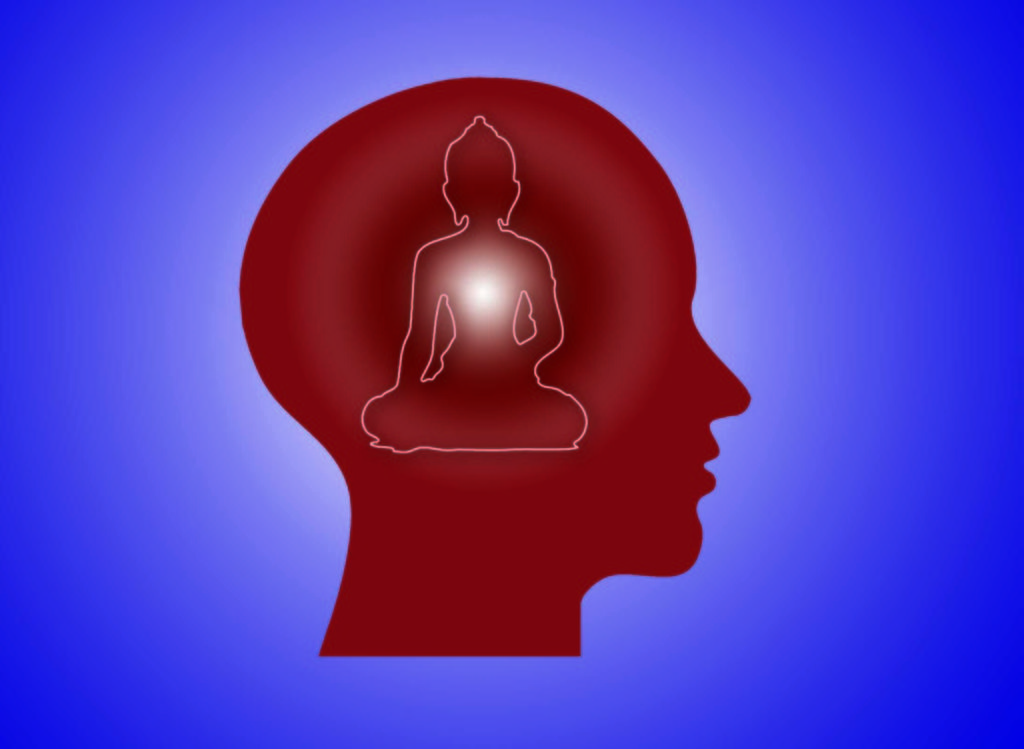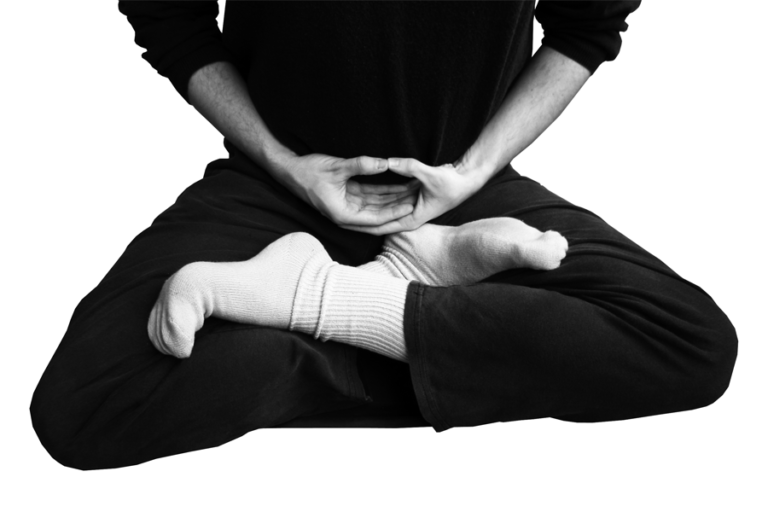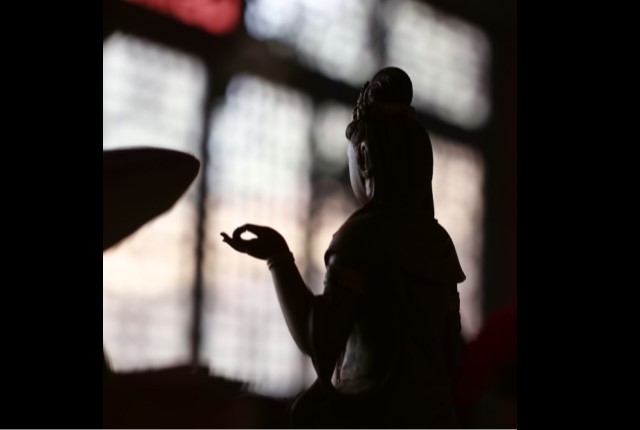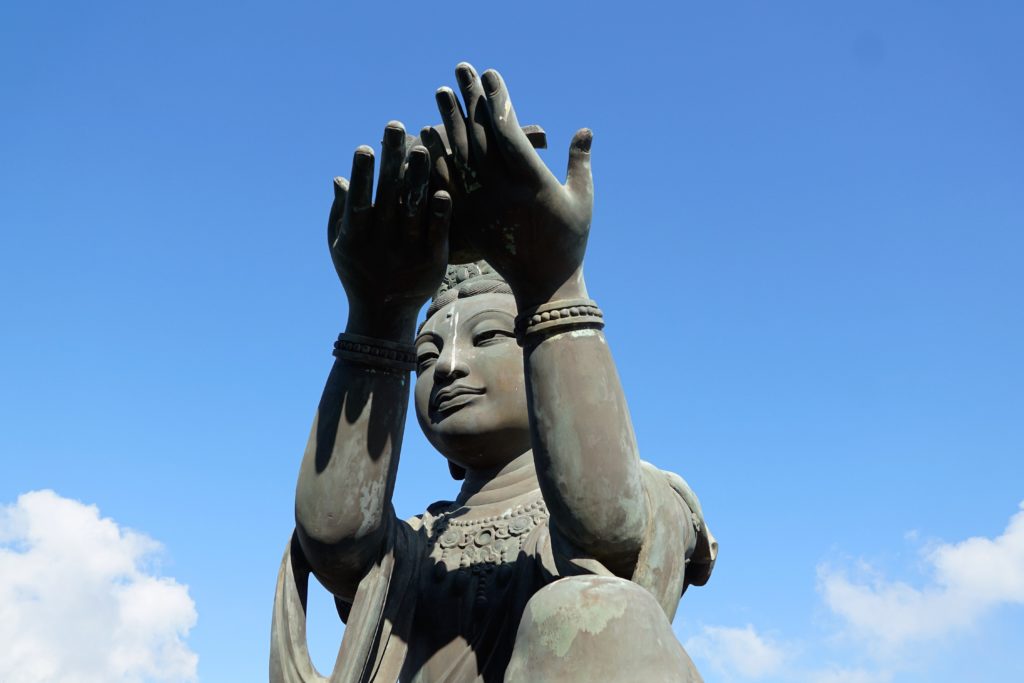
We all have our share of headaches and heartaches. Physically, we all have to face aging, sickness and death. Mentally, we have to deal with problems arising from greed, hatred and ignorance. The Chinese have a saying that aptly describes our predicament: “Heaven and hell sometimes end; the threads of sorrow continue forever.” Our afflictions are as deep as the dark blue sea and are as dense as the trees in the forest. Our afflictions are the source of our delusions and unwholesome karma, propelling us through the cycle of birth and death.
Mental afflictions, however numerous and varied, all stem from one cause—
attachment to the self.
Because of wrong views stemming from this attachment, countless mental afflictions are generated. To cultivate Dharma, we first need to learn how to overcome these mental afflictions. The main source of all mental afflictions are greed, hatred, and ignorance. To eliminate mental afflictions, we must be concerned with how to eliminate the three poisons of greed, hatred, and ignorance.
Wang Yangming, a famous Confucian scholar of the Ming dynasty, once said,
“To catch the bandit in the hills is easy; to arrest the thief in ourselves is tough.”
Fortunately, the Buddha teaches that we should “diligently practice precepts, meditative concentration and wisdom in order to extinguish the fires of greed, hatred and ignorance.”
Because of the habit pattern of our mind, we tend to focus on our own interests rather than that of others. But if we apply the power of upholding precepts, we will refrain from harming others, even at the expense of sacrificing our preferences. Thus, we can see that upholding precepts can be an antidote to greed.
As for our various inner desires, and our doubts and resentments in our day-to-day life, we need to apply the practice of “meditative concentration” in order to maintain an unbiased and pure mind and to be free from the snares of our mental afflictions.
With regards to ignorance, the antidote is wisdom. The wisdom we speak of here is not the same as worldly knowledge, because knowledge is not always wholesome. When we do not allow our inner prajna-wisdom to manifest, when our dealings in the day-to-day affairs are in discord
with the Dharma, and all our actions are driven by emotions and a selfish worldly understanding, that is called ignorance.
———————————————————————————————–
In Buddhism, wisdom is cultivated by listening, contemplation, and experiential practice. It is a method of observation and reflection on reality. Only through this method can we extinguish the great ills of greed, hatred, and ignorance.
————————————————————————————————-
Many of us have heard of the saying, “Do no evil, hear no evil and speak no evil.” This is a good start. Our sensory organs—eyes, ears, nose, tongue, body, and mind—constantly make contact with the outside world and make discriminations; consequently, we develop many mental afflictions. When we are vigilant of the three doors of karma, we are removing the conditions for the three poisons to arise. In this way, our actions can be more wholesome, and mental afflictions can gradually decrease.
My maternal grandmother was a very religious woman. She began her lifelong vegetarian practice when she was seventeen—the same time she began her practice of reciting Amitabha’s name. She was a very compassionate woman and had a lot of influence on my decision to join the sangha. She had three sons with families of their own, but unfortunately all of their children died very young, around three or four years of age. My grandmother was never bitter about this misfortune, but this was not because she did not feel the loss. She was a Buddhist in the truest sense of the word. She realized that when there is birth, there is also death, and we reap what we sow.The birth of her grandchildren was the culmination of causes and conditions; their departure, too, was the result of conditionality.
The human lifespan is not that long to begin with, and we should not excessively grieve over the loss of our loved ones. Many of us choose to believe in the law of conditionality when things are going well for us, but we question its validity when tragedy strikes. My grandmother truly knew how to put sorrows into perspective. She was an inspiration to me.
From Ten of Life’s Common Concerns, written by Venerable Master Hsing Yun.
Image from Pixabay.


